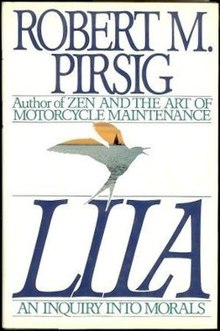
Immanuel Kant was a German philosopher and one of the central Enlightenment thinkers. Born in Königsberg, Kant's comprehensive and systematic works in epistemology, metaphysics, ethics, and aesthetics have made him one of the most influential figures in modern Western philosophy.

Robert Maynard Pirsig was an American writer and philosopher. He was the author of the philosophical novels Zen and the Art of Motorcycle Maintenance: An Inquiry into Values (1974) and Lila: An Inquiry into Morals (1991), and he co-authored On Quality: An Inquiry Into Excellence: Selected and Unpublished Writings (2022) along with his wife and editor, Wendy Pirsig.

Thomas Reid was a religiously trained Scottish philosopher best known for his philosophical method, his theory of perception, and its wide implications on epistemology, and as the developer and defender of an agent-causal theory of free will. He also focused extensively on ethics, theory of action and philosophy of mind.
In ethics and the social sciences, value theory involves various approaches that examine how, why, and to what degree humans value things and whether the object or subject of valuing is a person, idea, object, or anything else. Within philosophy, it is also known as ethics or axiology.
Moral relativism or ethical relativism is used to describe several philosophical positions concerned with the differences in moral judgments across different peoples and cultures. An advocate of such ideas is often referred to as a relativist for short.
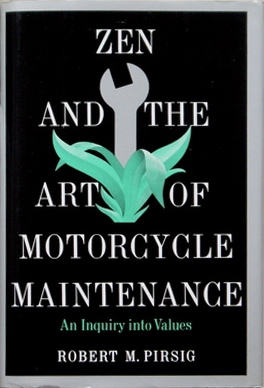
Zen and the Art of Motorcycle Maintenance: An Inquiry into Values is a book by Robert M. Pirsig first published in 1974. It is a work of fictionalized autobiography and is the first of Pirsig's texts in which he explores his concept of Quality.
Richard McKeon was an American philosopher and longtime professor at the University of Chicago. His ideas formed the basis for the UN's Universal Declaration of Human Rights.

A Discourse on the Moral Effects of the Arts and Sciences (1750), also known as Discourse on the Sciences and Arts and commonly referred to as The First Discourse, is an essay by Genevan philosopher Jean-Jacques Rousseau which argued that the arts and sciences corrupt human morality. It was Rousseau's first successful published philosophical work, and it was the first expression of his influential views about nature vs. society, to which he would dedicate the rest of his intellectual life. This work is considered one of his most important works.
The Metaphysics of Quality (MOQ) is a theory of reality introduced in Robert M. Pirsig's novel, Zen and the Art of Motorcycle Maintenance (1974) and expanded in Lila: An Inquiry into Morals (1991).
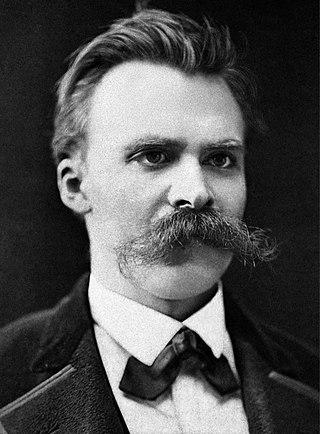
Friedrich Nietzsche (1844–1900) developed his philosophy during the late 19th century. He owed the awakening of his philosophical interest to reading Arthur Schopenhauer's Die Welt als Wille und Vorstellung and said that Schopenhauer was one of the few thinkers that he respected, dedicating to him his essay Schopenhauer als Erzieher, published in 1874 as one of his Untimely Meditations.
Metaphysics is the branch of philosophy that investigates principles of reality transcending those of any particular science. Cosmology and ontology are traditional branches of metaphysics. It is concerned with explaining the fundamental nature of being and the world. Someone who studies metaphysics can be called either a "metaphysician" or a "metaphysicist".

Philosophy is the systematized study of general and fundamental questions, such as those concerning existence, reason, knowledge, values, mind, and language. Some sources claim the term was coined by Pythagoras, although this theory is disputed by some. Philosophical methods include questioning, critical discussion, rational argument, and systematic presentation.
The following outline is provided as an overview of and topical guide to metaphysics:
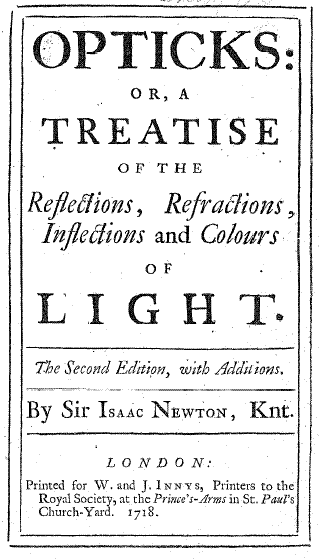
Newtonianism is a philosophical and scientific doctrine inspired by the beliefs and methods of natural philosopher Isaac Newton. While Newton's influential contributions were primarily in physics and mathematics, his broad conception of the universe as being governed by rational and understandable laws laid the foundation for many strands of Enlightenment thought. Newtonianism became an influential intellectual program that applied Newton's principles in many avenues of inquiry, laying the groundwork for modern science, in addition to influencing philosophy, political thought and theology.
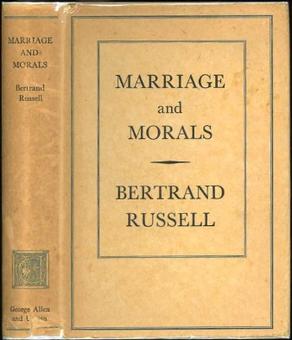
Marriage and Morals is a 1929 book by philosopher Bertrand Russell, in which the author questions the Victorian notions of morality regarding sex and marriage.

British philosophy refers to the philosophical tradition of the British people. "The native characteristics of British philosophy are these: common sense, dislike of complication, a strong preference for the concrete over the abstract and a certain awkward honesty of method in which an occasional pearl of poetry is embedded".
This is a list of philosophical literature articles.

Yirmiyahu Yovel was an Israeli philosopher and public intellectual. He was Professor Emeritus of philosophy at the Hebrew University of Jerusalem and at the New School for Social Research in New York. Yovel had also been a political columnist in Israel, cultural and political critic and a frequent presence in the media. Yovel was a laureate of the Israel Prize in philosophy and officier of the French order of the Palme académique. His books were translated into English, French, German, Spanish, Portuguese, Rumanian, Hebrew, Korean and Japanese. Yovel was married to Shoshana Yovel, novelist and community organizer, and they had a son, Jonathan Yovel, poet and law professor, and a daughter, Ronny, classical musician, TV host and family therapist.

In the field of philosophy, Axiological ethics is concerned with the values by which people uphold ethical standards, and the investigation and development of theories of ethical behaviour. Axiological ethics investigates and questions what the intellectual bases for a system of values. Axiologic ethics explore the justifications for value systems, and examine if there exists an objective justification, beyond arbitrary personal preference, for the existence and practise of a given value system. Moreover, although axiological ethics are a subfield of Ethical philosophy, axiological investigation usually includes epistemology and the Philosophy of value.
